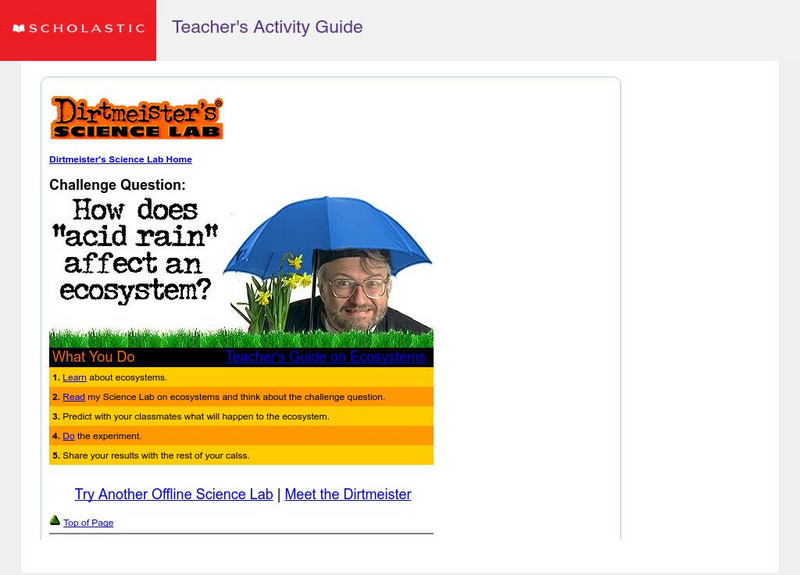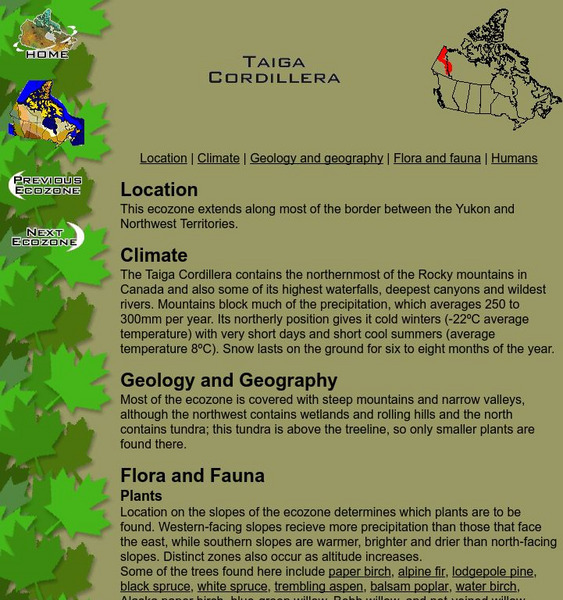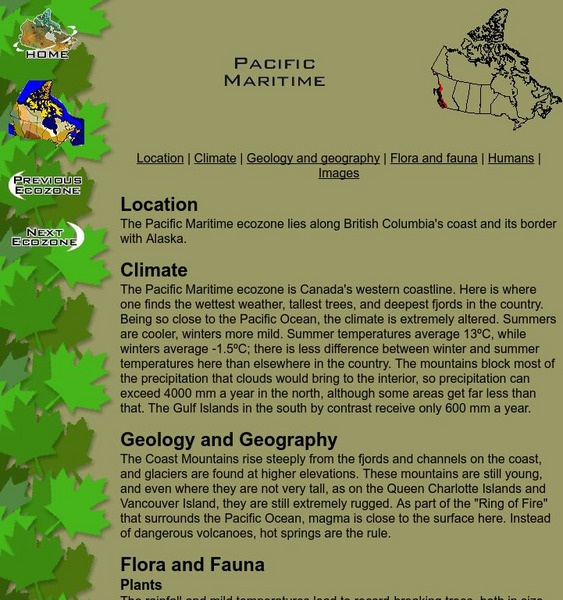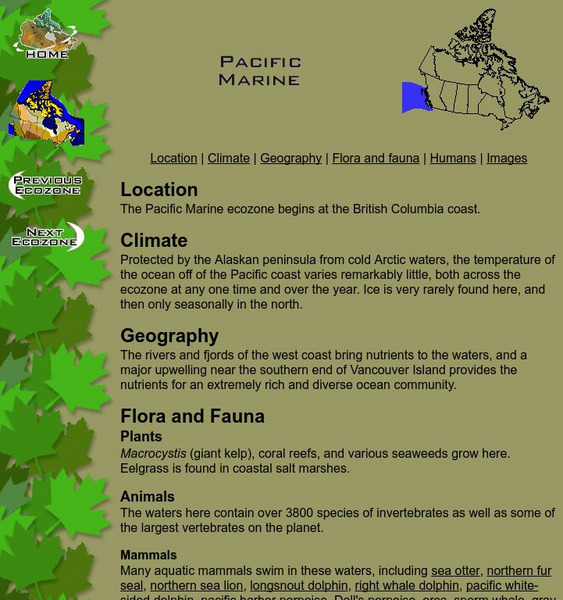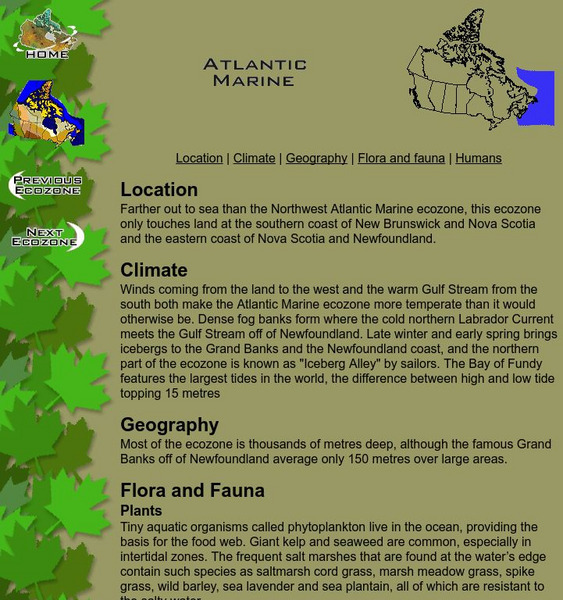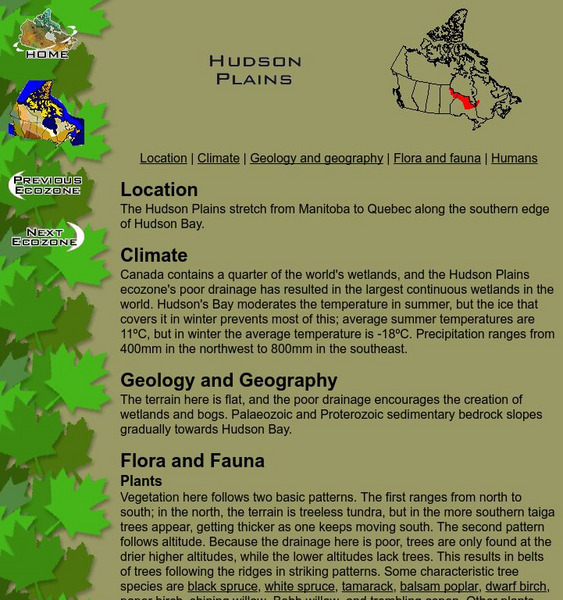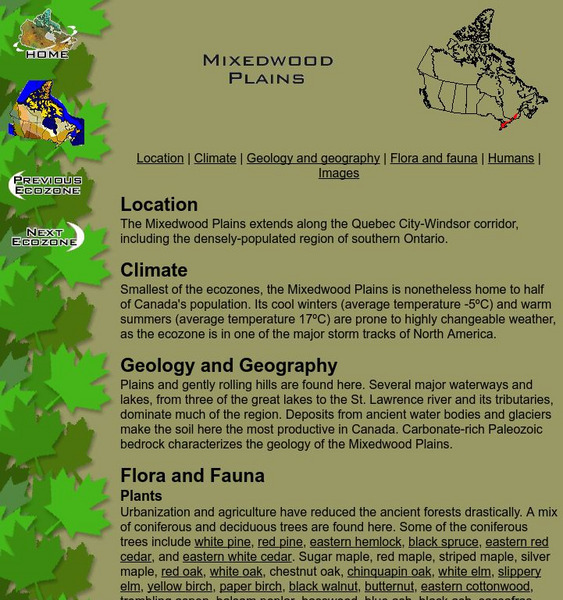National Earth Science Teachers Association
Windows to the Universe: Climate Changes With Latitude
A map showing the division of the world into eight biomes based on different climate types around the world. There are links to more information about each biome.
Alabama Learning Exchange
Alex: Abc Book of Fauna
This lesson is to provide students the opportunity to explore the various types of fauna (animals) found in the various biomes throughout the world.
Scholastic
Scholastic: Dirtmeister's Science Lab: Acid Rain
Step into Dirtmeister's Science Lab as he sets out to answer the challenge question: "How does acid rain affect an ecosystem?" Learn about ecosystems, make your predictions and then do the experiment.
Alabama Learning Exchange
Alex: Making and Observing Life in a Terrarium
For this lesson, the students will learn what a terrarium is, the layers of a terrarium, and the function of these layers. They will see how these components work together to create an ecosystem. This lesson plan was created as a result...
McGill University
Mc Gill University: Canadian Biodiversity: Ecozones: Southern Arctic
A brief, concise description of the Southern Arctic ecozone which extends across the northern edge of the continental Northwest Territories and Quebec. It includes a collection of images of the landscape as well as those of animals and...
McGill University
Mc Gill University: Canadian Biodiversity: Ecozones: Taiga Plains
The Taiga Plans are centered around the Mackenzie River in the western Northwest Territories. This is a brief, concise description of the location, climate, geology and flora and fauna. It includes a collection of images of the landscape...
McGill University
Mc Gill University: Canadian Biodiversity: Ecozones: Taiga Shield
This ecozone stretches eastward from the Taiga Plains to just south of the Southern Arctic. This brief, concise description includes a collection of images of the animals and birds native to the location. Many of the images include...
McGill University
Mc Gill University: Canadian Biodiversity: Ecozones: Boreal Plains
The Boreal Plains are located in the center of Alberta and extend into Saskatchewan and Manitoba. This is a brief, concise description of the location, climate, geology and flora and fauna. It includes a collection of images of the...
McGill University
Mc Gill University: Canadian Biodiversity: Ecozones: Prairies
This Prairies ecozone covers southern Alberta, Saskatchewan, and Manitoba. This brief, concise description includes a collection of images of the animals and birds native to the location. Many of the images include descriptions.
McGill University
Mc Gill University: Canadian Biodiversity: Ecozones: Taiga Cordillera
The Taiga Cordillera extends along the border of the Yukon and Northwest Territories. This is a brief, concise description of the location, climate, geology and flora and fauna. It includes a collection of images of the landscape as well...
McGill University
Mc Gill University: Canadian Biodiversity: Ecozones: Boreal Cordillera
This Boreal Cordillera contains the mountains of the southern Yukon and northern British Columbia . This brief, concise description includes a collection of images of the animals and birds native to the location. Many of the images...
McGill University
Mc Gill University: Canadian Biodiversity: Ecozones: Pacific Maritime
The Pacific Maritime ecozone lies along the British Columbia coast and it's border with Alaska. This is a brief, concise description of the location, climate, geology and flora and fauna. It includes a collection of images of the...
McGill University
Mc Gill University: Canadian Biodiversity: Ecozones: Montane Cordillera
The Montane Cordillera covers most of southern British Columbia and some of southwestern Alberta. This is a brief, concise description of the location, climate, geology and flora and fauna. It includes an excellent collection of images...
McGill University
Mc Gill University: Canadian Biodiversity: Ecozones: Pacific Marine
The Pacific Marine ecozone begins at the British Columbia Coast. This is a brief, concise description of the location, climate, geology and flora and fauna. It includes some images of the animals and birds native to the location. Many of...
McGill University
Mc Gill University: Canadian Biodiversity: Ecozones: Atlantic Marine
The Atlantic Marine ecozone is located father out to sea and touches land at the southern coast of New Brunswick and Nova Scotia and the eastern coast of Nova Scotia and Newfoundland. This brief, concise description includes a collection...
McGill University
Mc Gill University: Canadian Biodiversity: Ecozones: Hudson Plains
The Hudson Plains ecozone stretches from Manitoba to Quebec along the southern edge of the Hudson Bay. This is a brief, concise, description of the location, climate, geology and flora and fauna. It includes a collection of images of the...
McGill University
Mc Gill University: Canadian Biodiversity: Ecozones: Mixedwood Plains
This Mixedwood Plains ecozone extends along the Quebec City- Windsor corridor and the densely-populated region of Southern Ontario. This brief, concise description includes a collection of images of the animals and birds native to the...
McGill University
Mc Gill University: Canadian Biodiversity: Ecozones: Boreal Shield
The Boreal Shield runs from Alberta to Newfoundland. This is a brief, concise description of the location, climate, geology and flora and fauna. It includes a collection of images of the landscape as well as those of animals and birds...
Science Education Resource Center at Carleton College
Serc: Interdependence of Life: How an Ecosystem Responds to Change
In this biology field investigation, learners will investigate the site of an environmental disturbance, identify plant and animal life within that specific area, and compare it to an adjoining forested area. Students will map both areas...
Utah Education Network
Uen: P H Changes in a Small Ecosystem
A pond water/hay infusion will be developed and observed. Student groups will add a range of acid and base solutions to look for changes.
Georgia Department of Education
Ga Virtual Learning: Life and Environment Relationships
In this amazingly comprehensive interactive tutorial you will learn about the characteristics and features of the different biomes on our planet.
Nature Conservancy
The Nature Conservancy: From America's Rainforest to America's Desert
On this virtual field trip, teachers will help their students travel to the lush, rain-soaked splendor of the Olympic Peninsula and explore the urban watershed of Seattle. Next, they will head to Arizona's dry, desert landscape and take...
Virginia Tech
Virginia Tech Univ: The Forest Community
Describes the complexity of a forest ecosystem. Pine forest succession. Role of fungi in the forest. Photos, examples.
University of Michigan
University of Michigan: Global Change: The Flow of Energy: Higher Trophic Levels
This lesson addresses the following questions: What is the efficiency with which energy is converted from trophic level to trophic level? What are the differences between assimilation efficiency, net production efficiency, and ecological...




